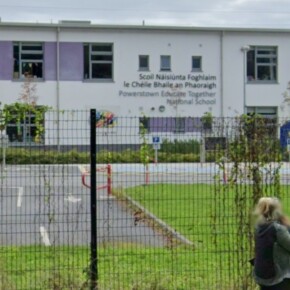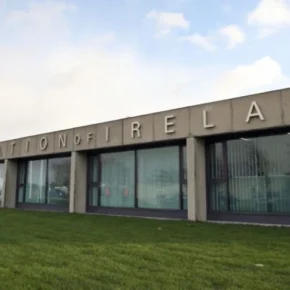Tusla Fostering Campaign is launched
Padraig Conlon 19 Sep 2022
Tusla – Child and Family Agency has launched a new Fostering Recruitment Campaign.
The aim of the campaign is to recruit new foster carers to meet the growing demand for placements as a result of the ongoing humanitarian crisis and the impact of Covid-19 in communities across Ireland.
There are many types of foster care such as, short-term, long-term, emergency placements, respite fostering, and a range of other supports for young people who need them.
Below is Ann’s* experience of being a respite foster carer.
“I have a quiet house… a place where the children can have space to feel relaxed in themselves and have engagement if they want it. We might watch a movie together and then discuss it afterward; we might go to the shops or visit my friends and extended family… just routine things,” says Ann about her role as a respite carer for Tusla.
It might not sound like much of a weekend to you but then again, when routine is something that you have been missing in life, such activities can be pretty great for a change.
Mention foster care to most people and an image of a life-long or long-term commitment springs to mind, but it doesn’t have to be that way.
Respite is essentially short-term care provided to a young person in order to support that child, support their parent or to give foster carers a break from supporting the child that is in their care.
“Offering respite suits me because I’m still working,” says Ann, from Dublin. “It’s planned care that takes place at weekends, usually about every two or three weeks.
“Sometimes I’ll take a child on a day-out for activities. Once we went on a boat trip around Dublin Bay, other times we might go to a camogie match or a park or playground depending on the age of the child.”
The main thing, though, says Ann is that the children can relax, get a break and take time out from the pressure of their lives at home, whether with their parents or with their full-time carers.
Respite can vary in its duration; sometimes it’s a few days, other times it can continue over a period of months or years on weekends as planned.
“I had one girl, Kate, for over two years,” says Ann. “She would come to stay for the weekend every three weeks or so; we got on well together. I integrated her into my own family with any events or gatherings that were happening. When she eventually moved, to another area she left me a ‘thank you’ note, saying how grateful she was to be made feel part of everything.
“I think the respite gave her some space to be a child – she loved her mum, but there many challenges in her family environment, and the respite was to help take away the pressures that the mum was feeling and to ease Kate’s own anxieties.”
Ann, who is a grandmother, has even had her granddaughter in her house while providing respite.
“That worked out well because the baby calmed the girl, who was feeling anxious at the time.”
In the seven years since she started offering respite, Ann, who lives alone, has cared for six individual children and two sets of siblings. Along the way there have been challenges.
“There was one little boy who came about five or six times. His behaviour was often challenging – you couldn’t turn your back or he’d be writing on the walls,” His inability to sleep some nights could lead to exhaustion,” she says.
Having siblings over makes for an interesting dynamic, and a sense of competitiveness.
Says Ann: “I had two sisters– beautiful, intelligent girls – and there would be a bit of rivalry over who got which bedroom, and they’d say, ‘well she got that room the last time, it’s my turn’…. That kind of thing.”
Support is there from Tusla’s social workers, so Ann can talk through any issues she might be having or to provide feedback on a particular child.
“I’ve learned a lot from the children. I think I’m more empathetic. I know they haven’t as easy a life as other kids, so I try to give them positivity and encouragement,” she says. It’s also important to treat every child as an individual and take them as they come.
“I try to make them as comfortable as possible, and I’ll listen to what they have to say if they want to talk, and I don’t pry.”
For Ann, the time spent with her young charges can sometimes be fleeting, but they still make an impact on her.
“I think of them from time to time, wondering how they’re getting on,” she says.
Thinking of others and showing a little kindness… it’s not complicated. A bit of empathy, a place a child can decompress, and a listening ear, that’s what it’s all about.
Simple stuff to a lot of people, but so important when it comes to the lives of those in care.
Ann is one of almost 4,000 foster carers from all walks of life who provide loving homes to more than 5,800 children.
To find out more about becoming a foster carer, see fostering.ie, call freephone 1800 226 771, email tusla.fostering@tusla.ie
*Names have been changed to protect the identities of those mentioned above











